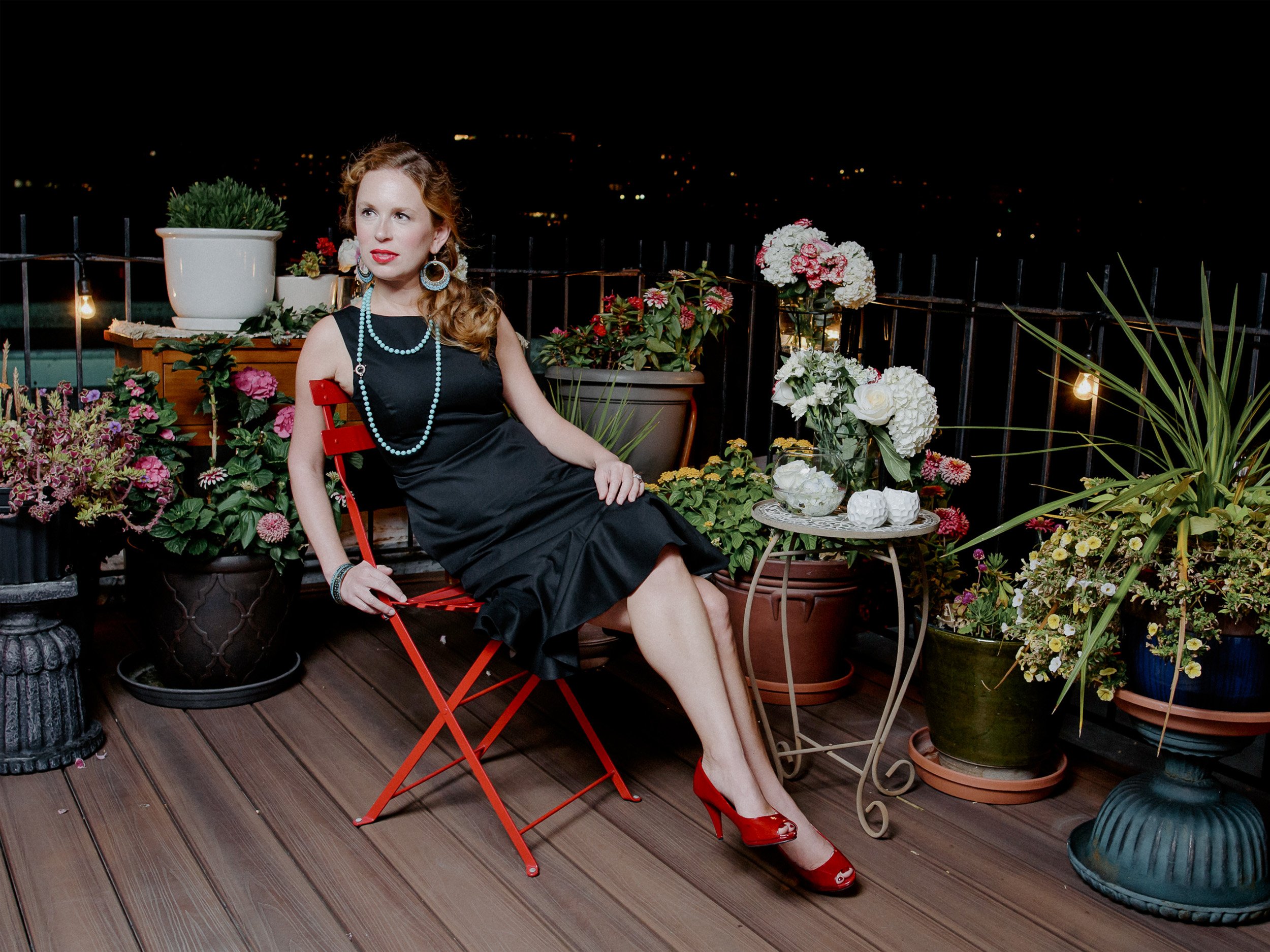Who’s Next: Rebecca Ballard
The attorney steps into sustainable fashion with her ethical clothing line, Maven Women.
by Erica Moody
Verena Radulovic
“I think we’re on the cusp of something really big,” says attorney-turned-designer Rebecca Ballard. “The fashion industry is following the steps of the food movement.” More people, she says, are becoming aware of where their clothes come from. Consumer understanding that the fashion industry is the second largest polluter in the world after oil and gas (reports show that the average American throws away 70 pounds of clothing and other textiles a year) as well as ethical concerns around poor labor practices such as sweatshops created the opportunity for Ballard, 35, to launch Maven Women. Her one-year-old fashion line offers sustainable clothing that looks good on you while being good for the world.
“Maven Women was born out of my belief that there are so many women out there like myself who want something better in terms of how people on the planet are treated with the clothes that they buy.”
While working as a labor and employment lawyer for the federal government and then as a nonprofit manager focusing on global issues related to modern slavery, Ballard became frustrated that her clothing options didn’t align with her values. “I was becoming more knowledgeable about issues in the global garment industry, doing advocacy around the industry, but I was really frustrated that there weren’t options that fit my aesthetic,” Ballard says. “Maven Women was born out of my belief that there are so many women out there like myself who want something better in terms of how people on the planet are treated with the clothes that they buy.”
While professional women want ethical, sustainable products, do they want pockets? A patterned dress liner? Knee-length or midi skirt? All stylistic aspects were up for discussion among a group of chic Washington women at a launch party last spring.
When votes were tallied (turns out women have mixed feelings about pockets but everyone loves a fun liner), Ballard got to work at producing dresses that are practical, flattering and friendly to people and the planet. “In terms of textile waste, I want to make sure that when we’re putting something forward people are really demanding it,” the North Carolina native explains.
“One of the great things about sustainable fashion that’s very empowering to women is we’re getting away from saying you have to wear trends.”
This unique co-creation process leads to less waste and empowers women to choose designs and styles that are flattering to their bodies and appropriate for their lives.
“There’s so much pressure on women to dress a certain way and be a certain way that might not be right for them,” Ballard says. “If a cut is in fashion, only wear it if it flatters you. One of the great things about sustainable fashion that’s very empowering to women is we’re getting away from saying you have to wear trends.”
Maven Women dresses are sold online directly to customers and will soon be available in local boutiques. The work-appropriate dresses are made from organic cotton, priced around $200 and named after women Ballard is inspired by. They are produced by fair trade manufacturer Mehera Shaw in Jaipur, India, which also provides the dyes and organic block print linings found in each dress.
Ballard had the idea for Maven Women ten years ago but wisely waited until she had more life experience to launch the line, and until consumers had become more conscious. A decade ago would have been too soon. “I believed in it so much that I wanted to give it the best chance possible.” If you have an idea, she advises, “launch it at the right time for yourself and the right time for the world.”
TIPS FOR ETHICAL DRESSING
• Buy less by buying better
• Wear your wardrobe
• Shop thrift and consignment boutiques
• Avoid polyester and nylon, unless they are recycled fibers
• Create a capsule wardrobe/signature look (like Steve Jobs’s “uniform”)
• Visit mavenwomen.com for a list of ethical retailers
Featured in:
Washington Life | April 2017




